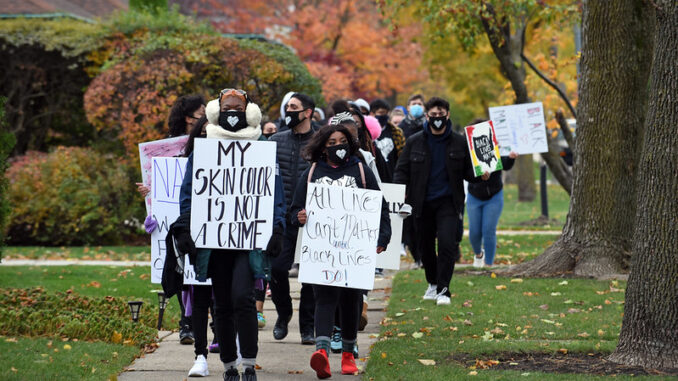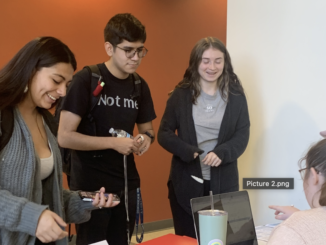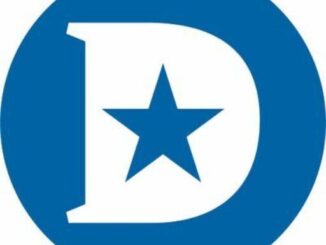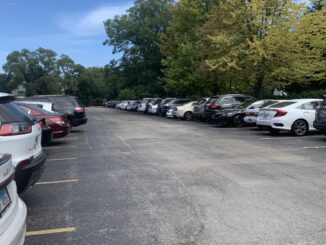
By Chelsea Zhao
Dominican University student leaders reflect on resources, racial awareness, and on-going issues facing African American students on campus.
Virginia Johnson, a junior majoring in Nutrition & BWS, said in an email reply that it was “intimidating” at first studying at Dominican University because of the small number of African American students.
Lauyrn Bergert, a senior majoring in Psychology and Black World Studies (BWS), and the president of National Association of Colored Women’s Clubs (NACWC), echoes the sentiment, saying she had multiple classes where she is the only black person in the room.
To take classes with African American professors, Bergert said she has to intentionally seek them out. “It can feel extremely lonely at times and I often find myself “code-switching” to fit in to spaces on this campus” Bergert said.
Groups that support African American students, Johnson mentioned, are Black Student Union (BSU), Black World Studies (BWS), the Village, and the National Association of Colored Women Clubs (NACWC).
Racial awareness is a frequent discussion point among these organization and classes according to Johnson.
As the president of the NACWC, Bergert works with others on “a crucial focus on the empowerment of Black men and women.” She also points out the difficulty of building connections outside these clubs and organizations.
“These clubs and organizations work tirelessly to empower Black men and women, but when our Black men and women do not feel welcomed at DU, there is not many students for us to build connections with,” Bergert said.
Earlier this year, Bergert also wrote an Opinion-Editorial article calling out on the low retention rate of African American students and the lack of resources or support. The initiative of making these requests a reality is up to the administration of the university.
To first year African American students, Johnson recommends the Village and Wellness Center to cope with stress and displays of atrocity.
“The Village connects you with a mentor, discussions regarding the African American community, and stipend towards your tuition,” Johnson said. “Because of everything that has been displayed on media specifically the killings of Black people, I would recommend the wellness center and even reaching out to clubs to vent. Trauma and pain should never be experienced in silence.”
Bergert noted that the Village is undergoing revamp after the director of the program has retired.
As a Black World Studies major, Johnson said she has taken classes “that have acknowledged racial injustice along with intersectionality of injustices seen in education, history, and location.” Additionally, Black World Studies offer electives with educational insights.
“I know first year students have concerns about getting credit for elective but BWS offers electives while learning more about your own heritage” Johnson said.
Bergert has also taken classes on racial inequality and she sees a greater need of practice in communities outside the concepts.
“I have taken multiple classes for my Black World Studies major on racial inequality and injustice as well, but I believe there is only so much you can learn from a textbook and you must go out in the community to put in the work by meeting others and figuring out what their needs may be,” Bergert said.
According to Johnson, last year, BSU and the Village discussed the retention rate of African American students on campus. Robbi Byrdsong-Wright, Director of Multicultural Student Success, mentioned the retention rate along with other issues in a letter.
However, according to Johnson, the issues in the letter have not been acknowledged. She said she is hopeful on Dominican University’s initiative reaching out to community to improve on the retention rate.
“You have a lot of communities that have talent, and gifts that go unnoticed because institutions do not want to use their resources to reach out to these communities” Johnson said.
Bergert also organized a “Walk of Solidarity” on October 29, calling Dominican University to stand with African American students against the police brutality incidents. The event’s message focused on working together to make a change and we must start in our own communities first.
“I believe that it is up to the University to foster relationships with ALL students and create an anti-racist space” Bergert said. “I think new policies and procedures need to be put in place to ensure our students are able to feel welcomed and call Dominican their second home.”
qzhao@my.dom.edu
Photo credit to Dominican University Flickr




